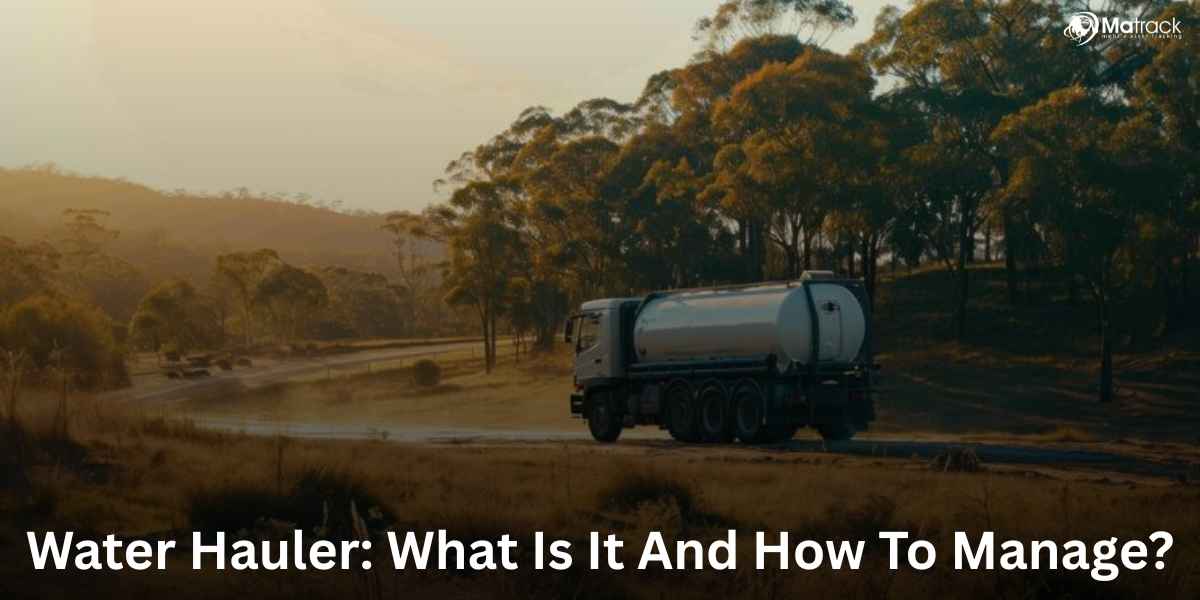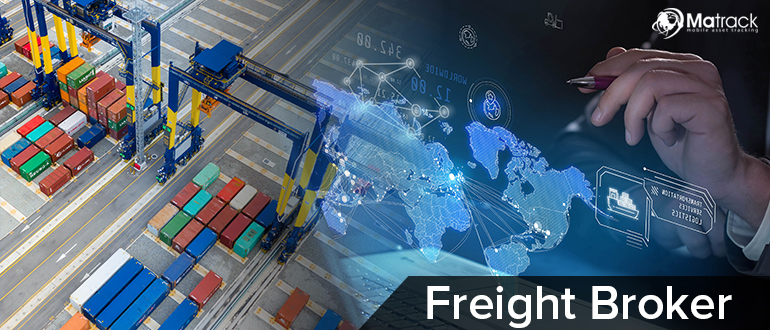Key Takeaways:
- Water haulers use certified tankers to deliver potable and non-potable water for residential, agricultural, industrial, and oilfield needs where infrastructure is limited.
- Efficient water hauler operations depend on certified equipment, route planning, and strict sanitation compliance to maintain water quality and delivery reliability.
- Business success requires tracking delivery performance, automating billing, and preparing for seasonal demand to ensure steady service and operational uptime.
- Matrack GPS Fleet Tracker supports route accuracy, vehicle monitoring, and cost control by providing real-time tracking, maintenance alerts, and fuel usage insights.
What Is A Water Hauler?
A water hauler is a bulk transport service that delivers water from municipal supply stations or certified treatment plants. It uses specialized vehicles designed for high-capacity and long-distance delivery.
Tanker trucks are equipped with sanitary-certified tanks to transport potable water safely. These trucks include pumps, hoses, and fittings for controlled and hygienic transfer.
Commercial water haulers serve industrial and agricultural clients, including construction sites, farms, and oilfields. Their services guarantee timely delivery and consistent water quality.
Types Of Water Hauler Services
Residential Hauling
Residential hauling delivers potable water to homes, private tanks, and swimming pools. This service ensures access to clean water where municipal supply is unavailable or insufficient.
Agricultural Hauling
Agricultural hauling provides irrigation water for crops and livestock in rural or drought-affected regions. It supports consistent farm operations by replacing unreliable rainfall or groundwater sources.
Industrial Hauling
Industrial hauling supplies large volumes of water for dust suppression, surface cleaning, or material mixing. These services are essential for construction sites and manufacturing plants requiring non-potable water.
Oilfield Hauling
Oilfield hauling transports flowback or brine water to and from drilling and hydraulic fracturing locations. This service helps manage waste fluids and supports water reuse systems in extraction zones.
Each service uses tank coatings tailored to the water type to prevent contamination and comply with sanitation regulations.
Water Hauler Equipment Requirements
Potable Water Tanks
Stainless steel and food-grade polyethylene prevent contamination during storage and transport. Tank materials eliminate the risk of chemical leaching into the water.
Pump Systems
Electric or gas-powered motors manage water flow during loading and unloading. Pump control ensures consistent speed and volume delivery.
Metering Tools
Flow meters track exact water volume transported per load. Measurement accuracy supports billing and regulatory compliance.
Hoses and Nozzles
Sanitary-grade hoses and nozzles maintain purity during water transfer. Contamination risk stays low through sealed, easy-to-clean connectors.
How To Manage Water Hauler Business?
Set Service Focus
Define the sectors served, such as residential, agriculture, or oilfield. Align delivery zones and tank capacity to match client needs.
Get Certified
Obtain transport permits, vehicle registrations, and sanitation approvals. Comply with local and state water handling regulations.
Maintain Equipment
Use food-grade tanks, clean hoses, and reliable pumps. Inspect all components regularly and clean tanks after each delivery.
Optimize Routes
Plan delivery paths using GPS and logistics software. Cut fuel costs and reduce delivery times by avoiding idle travel.
Track Performance
Monitor water volume, delivery times, fuel usage, and equipment uptime. Use data to adjust operations and improve efficiency.
Automate Billing
Switch to digital invoicing and electronic delivery tickets. Ensure faster payment cycles and accurate transaction records.
Train Drivers
Train drivers on hygiene handling, pump operation, and route management. Evaluate performance based on delivery accuracy and client feedback.
Stay Customer-Centered
Confirm orders, share delivery updates, and solve service issues quickly. Build trust through clean, timely, and transparent operations.
Verify Water Sources
Use only licensed fill stations or certified treatment plants. Check water quality before transport to ensure compliance.
Plan for Demand Peaks
Anticipate high-usage periods like summer or drought. Keep backup trucks, drivers, and equipment ready for sudden demand.
What Are The Benefits And Challenges In Water Hauler Business?
| Benefits | Challenges |
| Low startup cost compared to utility-scale water services | Seasonal demand fluctuations reduce predictability |
| Stable demand across residential, agricultural, and industrial sectors | Strict sanitation and licensing requirements |
| High customer retention from repeat delivery schedules | Fuel price volatility affects operating margins |
| Scalable operations with additional trucks and staff | Driver turnover and training overhead |
| Revenue stability during infrastructure failures or droughts | Dependence on approved and limited water sources |
How Matrack Helps You In Water Hauler Business Management?
Matrack GPS Fleet Tracker improves delivery accuracy by showing live truck positions and route activity. Water hauler operators rely on this data to track tanker arrivals, reduce unauthorized stops, and maintain timely bulk water delivery to remote or high-demand sites.
Maintenance alerts based on vehicle usage help water hauler fleets avoid equipment failure during critical runs. Scheduled reminders ensure pumps, valves, and tank systems stay operational for safe and uninterrupted water transport.
Fuel reports and driver behavior insights expose cost drains like excessive idling or route deviations. These tools improve vehicle efficiency and reduce delivery costs, which is essential for sustaining frequent water hauls across long distances.



